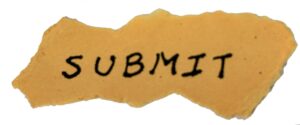
Thanks for getting this far! To know if your work fits with moral injury as our theme, you need to know–if you don’t already–what we mean by moral injury. Moral injury occurs in two categories of circumstances.
In the first, an individual engages in an act that is a transgression of that person’s own moral code and which has serious, even grave consequences. Or, the individual fails to do something when their moral code demanded they act with, again, serious consequences. In the second category, a person is morally injured by seeing others engage in immoral behavior (with serious consequences) which causes a loss of faith or trust, or even hostility, toward authority, institutions, and even one’s perception of human morality. It has psychological, social, and spiritual aspects.
The field of moral injury has been applied to combat veterans. Consider a Vietnam veteran who kills a noncombatant. Or who sees his or her own military leaders engage in incompetent, careless, reckless behavior that got people hurt or killed. That doesn’t just cause PTSD. It is an assault on the person’s moral faculties.
Or consider a police officer whose line of work exposes him regularly to the worst kinds of conduct in human beings.
Another: Someone works for a government child protection office. They also see very bad human behavior, victimization of children, but also work in a system that doesn’t necessarily take good care of children and families.
Another: A driver engages in behavior in their car that distracts them and they cause an accident in which an innocent person is severely injured or killed. Subsequently, the driver realizes they had a moral duty to be attentive when driving and due to their negligence, terrible harm is done.
I have no length guidelines for poems. Previously published work will be considered, as long as we can quickly resolve any permission to reprint issues.
Update (July 2024): This project remains experimental. Having run it for a while, I find that I need to comment about the poetry part!
I run several poetry journals. Most good journals reject the majority of submissions. Up to 95%. Most published poems are by poets with a track record of publishing poems. They are by poets who have learned to write good poems. For this journal, I’m not necessarily expecting the most expertly crafted poems. However, I admit that I’ve had some work submitted that is about powerful and moving stuff, but, as poems, they just weren’t good.
Here are some things to consider.
- As an editor, publisher, and reader of poetry, I dislike rhyme. A lot. I find it off-putting. I rarely accept poems with rhymes.
- Poets should avoid cliché. Here’s a list.
- When a poet is writing about their own painful experience, great care must be taken to avoid how one writes about feelings. Good poetry never declares feelings. To use a bit of a writing cliché, the poem should show feelings, not tell feelings. Even if you are a victim, you have to be careful to avoid using the poem to avoid exploiting the readers’ sympathy.
- Poems need to be rewritten, then revised, then edited down, then rewritten, and then revised and revised and rewritten. Not necessarily in that order. Along those lines…
- Look at every phrase, every word, and carefully consider whether it is needed. Cut that word. Cut that phrase.
- Don’t give up too much in the poem. Don’t spell out what the poem is about in the title. In the poem itself, make the reader focus and work a little to get what you’re saying.
- Finally, I get a lot of poems that really should be prose. A line of poetry is an artful expression. Prose can be artful. There’s no reason to break up language into lines just to make it a poem.
I hope that helps.
Here’s a link to Submittable, where you can submit your work. Submittable link: https://righthandpointing.submittable.com/submit/277518/moral-injury-project
Questions to me at dalewisely@gmail.com.
Thanks for submitting!
Dale Wisely
Editor